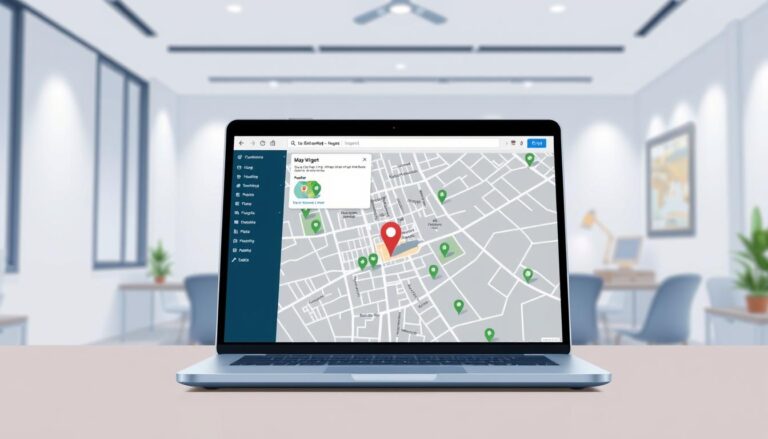Exploring search engine optimization (SEO), I see geotargeted keywords as key to local SEO success.
Using the right SEO strategy helps businesses show up more in local searches. This brings more people to their stores, which can increase sales.
From my experience, using local SEO techniques is essential. It helps businesses stay competitive in the market.
Key Takeaways
- Geotargeted keywords enhance local search visibility.
- A well-planned SEO strategy drives foot traffic and revenue.
- Local SEO techniques are vital for business success.
- Understanding geotargeted keywords is key to local SEO.
- Effective implementation of SEO strategies boosts online presence.
Understanding Geotargeted Keywords
To effectively target local audiences, it’s key to understand geotargeted keywords. These keywords include location-specific info. They help businesses attract people searching locally.
What Makes Keywords “Geo-Targeted”
Geotargeted keywords have geographical terms like city names, state abbreviations, or zip codes. For example, a New York business might use “New York coffee shop” or “coffee shop NYC.” These keywords show search engines the business is for local searches.
Key characteristics of geotargeted keywords include:
- Location-specific terms
- Relevance to local search queries
- Potential to increase local search visibility
The Difference Between Local and National Search Terms
Local search terms differ from national ones in intent and specificity. National terms are broad, while local terms include specific places. For instance, “coffee shop” is national, but “coffee shop near me” or “coffee shop in Manhattan” are local.
Why Local Keyword Targeting Matters for Business Growth
In today’s digital world, local keyword targeting is key for business growth. More people use online searches to find local products and services. Businesses need to make their online presence strong to attract these customers.
Connecting with High-Intent Local Customers
Local keyword targeting helps businesses reach customers looking for their products or services in certain areas. By using location-based keywords, they can show up more in search results. This brings more qualified leads to their site. Some benefits include:
- More people visiting physical stores
- Higher conversion rates from targeted marketing
- Greater brand awareness in the local community
Reducing Competition in Search Results
Targeting local keywords also helps businesses compete less in search results. They can focus on attracting customers in their area instead of big national brands. This approach helps them:
- Rank higher in local search results
- Beat bigger competitors in local search rankings
- Build a strong online presence in their local market
How to Research Effective Geotargeted Keywords
Geotargeted keyword research is key for a strong local SEO plan. To lead in local search, businesses need to know how to find and use geotargeted keywords well.
Tools for Local Keyword Research
Many tools help with local keyword research. They help find the right geotargeted keywords. Google Keyword Planner and local SEO tools are two must-haves.
Google Keyword Planner Location Targeting
Google Keyword Planner lets businesses target specific areas. It’s a top tool for finding local keywords. It helps find keywords that match your location.
Local SEO Tools and Analytics
Local SEO tools and analytics give insights into local search trends. They help businesses fine-tune their keyword strategy. These tools analyze search volume and competition, guiding smart decisions.
Analyzing Local Search Volume and Competition
Understanding local search volume and competition is vital. It helps businesses make their content more visible. By knowing the search volume and competition for certain keywords, they can improve their strategy.
Key considerations when analyzing local search volume and competition include:
- Identifying relevant keywords with moderate search volume
- Assessing competition for targeted keywords
- Adjusting keyword strategy based on search volume and competition analysis
With the right tools and methods, businesses can craft a strong geotargeted keyword research plan. This boosts their local SEO and brings more targeted visitors to their site.
Implementing Geotargeted Keywords in Your Content Strategy
To use geotargeted keywords well, businesses need a solid content strategy. This means making your online presence speak to local people and search engines.
Website Content Optimization Techniques
Getting your website’s content right is key for local SEO. Use geotargeted keywords in titles, descriptions, headings, and text. Make sure they fit naturally and don’t overdo it.
Focus on the homepage, service pages, and other important sections. This boosts your ranking for searches about your area.

Creating Location-Specific Landing Pages
Creating pages for specific places is a smart move. These pages should meet local customers’ needs, using the right keywords.
I suggest making separate pages for different areas. This makes your site better for users and search engines for location searches.
Blog Content with Local Focus
Writing blog posts with a local twist is another good strategy. Talk about local events, news, or topics that interest your community.
Using geotargeted keywords in your blog attracts local readers. It also helps your site show up more in search results. Mix informative and promotional content to keep your audience engaged.
Geotargeted Keywords for Google Business Profile Optimization
A well-optimized Google Business Profile with geotargeted keywords boosts your local online presence. The right keywords make your business more visible in local searches. This brings more customers to your doorstep.
Category Selection and Business Description
Choosing the right category for your business is key. It helps Google know what and where you are. Use geotargeted keywords in your description to clearly state what you offer. This boosts your search visibility and helps customers find you.
Posts and Updates with Local Keywords
Posting updates on your Google Business Profile can enhance your local SEO. Add local keywords to your posts to make them more findable. For example, if you’re a bakery in New York, talk about “freshly baked goods in NYC” or “best cupcakes in Manhattan.” This connects you with local customers and boosts your profile’s visibility.
Review Response Strategy
Responding to customer reviews is vital for your Google Business Profile. Create a review response strategy that uses geotargeted keywords. Say thanks for the review and mention your location. This shows you value feedback and strengthens your local presence.
By using these strategies, you can optimize your Google Business Profile with geotargeted keywords. This improves your local SEO and attracts more local customers.
Common Mistakes to Avoid with Local Keyword Targeting
When using local keyword targeting, it’s key to steer clear of common mistakes. This strategy helps businesses attract local customers. But, it needs careful planning and execution.
To make your local SEO work, knowing common mistakes is vital. Here are some main areas to watch:
Keyword Stuffing in Local Content
Keyword stuffing is bad. It means adding too many keywords to try to rank higher. This hurts your site’s user experience and can get you penalized by search engines. Create quality content that naturally includes your target keywords.
Targeting Too Broad or Too Narrow Locations
Choosing the right location is key for local SEO success. Going too broad can bring in the wrong traffic. Going too narrow might miss your audience. Find the sweet spot by targeting areas that fit your business.

Neglecting Searcher Intent Behind Local Queries
Understanding what people are searching for is critical. Ignoring this can make your content useless. Know what your customers need to create content that meets their needs and drives sales.
By avoiding these mistakes, businesses can craft a better local SEO plan. It’s about finding the right balance. Use relevant keywords, target the right places, and meet your local audience’s needs.
Taking Your Local SEO to the Next Level with Geotargeted Keywords
To boost my local SEO, I keep my strategy sharp. I follow the latest trends and updates to stay ahead. This ensures my efforts pay off in the long run.
Using geotargeted keywords is key in local SEO. I create content that speaks to my local audience. This not only boosts my rankings but also attracts local customers who are ready to buy.
By using geotargeted keywords, I can stand out in search results. I analyze local search trends and adjust my keywords to beat the competition. This increases my online presence.
As I optimize my local SEO, I focus on providing content that matters to my audience. This approach helps me grow my local SEO efforts and achieve lasting success.










